WORLD CHAMPIONSHIP
MATCHES
(From 1886 Steinitz-Zukertort
to 2018
Magnus Carlsen-Fabiano Caruana)

Source: Palau Horizon
Page 15
Friday
March 25-28, 2005
LEGENDARY WORLD CHAMPION
BOBBY FISCHER DIED IN ICELAND
Robert James Fischer (1943-2008), the only American ever to become World Chess Champion in 1972 after winning the title match against Boris Spassky has unexpectedly passed away on the 17th of January, 2008 in a hospital in Reykjavik.
Chess players all over the world have always appraised his contribution to the royal game and admired him for the fighting spirit, his unquestionable devotion to the game and many other things he has done for chess.
As a young chess player, he showed quite early his talent and became the youngest Grandmaster in 1958. In many tournaments after that time he scored excellent results but the highest attention he received were connected with the crushing victories against super Grandmasters in the quarter -and semi-final games leading to the title match with Spassky.
In the match, Fischer achieved a convincing victory after profound struggles with his opponent and a similar achievement was reached by him in the World Championship Rematch (as he interpreted in that time) in Sveti Stefan/Belgrade in 1992 when after a long period of absence he returned to the chess life.
Unfortunately, there was no continuation of this return and the chess world has lost a great player forever. Beyond the opening systems he renewed and filled with new ideas, he innovated the chess clock/time system now most widely used in FIDE tournaments where the players get some extra time after their moves made.
This system completely eliminated the big trouble of the past games, the serious middle-game time pressure and the postponement of the continuation of the game for the next day. He also invented the random (shuffle) chess opportunity as in his view, not only the preparation but mainly the performance on-the-board should decide the outcome of the game.
During his life he has had many disputes with chess authorities, with the US Chess Federation, with other authorities but almost never with a fellow chess player.
As a human being, he was a very controversial person but the chess world shall be thankful to him for changing the conditions of the tournaments and increasing the reputation for the game.
He will always be undefeated champion in our eyes and wish him a peaceful rest. People of the chess world will remember him until chess is played.
Peter Rajcsanyi
Public Relations and Marketing Director
ROBERT JAMES FISCHER, 1943-2008
Bobby Fischer: The Times obituary
from Times Online, January 18, 2008, by GM Raymond Keene
Bobby Fischer, the brash, unschooled chess genius from Brooklyn who toppled the might of the Soviet chess system before his 30th birthday, is the only North American World Champion and was the only non-Soviet or non-Russian title holder between the Second World War and the victory of Indian Viswanathan Anand in October last year.
Fischer's taking of the World Championship from Boris Spassky in 1972 was hailed as a symbolic moment for American hopes in the Cold War, and in many ways, Fischer's story epitomized the self-reliant, frontier ideals of Americans. (It also inspired Chess, the musical).
Yet Fischer was a deeply disturbed man, and the dream evaporated after his victory in Reykjavik. Dramatically, Fischer renounced chess after failing to agree terms for his defense of the title and did not play a single competitive game for 20 years. Instead he descended into paronaoia, characterized by hate-filled and poisonously anti-Semitic outbursts against his own country.
Robert James Fischer was born in Chicago in 1943 to a Jewish mother and a German father (though his actual paternity has been a subject of speculation). His parents split when he was 2, and he moved with his mother and sister to New York. He took up chess aged 6 and soon became obsessed with the game, eventually dropping out of high school.
He won the US Championship at 14, thus qualifying for the World Championship Candidates Tournament of 1958, and becoming at the age of 15, the youngest Grandmaster in the world in the process. He performed very creditably, but the top Soviet players who dominated world chess had no problem handling him, and he was crushed 7-1 in his games against Tal and Petrosian.
His reaction in the renewed failure in 1962 qualifying event in Curacao was passionate, accusing the elite contenders of playing as a team, and refusing to countenance participation until the tournament system had been replaced by a series of matches and tournament thereafter often featured similarly brusque demands, and his career was interrupted more than once by long periods of withdrawals from international chess.
When he did play, it was obvious that a remarkable talent had emerged. His sharp, clear and vigorous style, his breathtaking speed of play and massive determination at the board made him a legend even before he won the world title.
He first sprang to prominence, when he won a brilliant game at the age of 13 in 1956 against the American master Donald Byrne. This game involved an amazing queen sacrifice, it went round the world and became known as the game of the century. It propelled Fischer's career in a way that no amount of first prizes in tournaments could possibly have done. He once won the US Championship with an 11-0 score and, in the Candidates' Matches of 1970-1, he succeeded in winning his first two matches against Taimanov and Larsen by six games to nil.
Fischer's World Championship match with Spassky was also characterized by his detailed demands and his near-refusal to play. After nerve-wrenching brinkmanship, Fischer condescended to sit at the board, persuaded by a personal telephone appeal from Henry Kissinger and the injection of considerable last-minute extra funds by British millionaire Jim Slater.
He began to play magnificent chess, which he backed up with an extraordinary battery of off-the-board protests that must have put great psychological pressures on both players. Fischer did not turn up for the second game, which was awarded to Spassky by forfeit; for the third game, Fischer insisted on the exclusion of all TV and film cameras and that the game should be conducted in a small closed room.
Has Spassky refused, the subsequent history of world chess might have been very different; Fischer won his first ever game against Spassky and quickly went on to establish a lead in the match. The Russians ultimately and belatedly retaliated by having the hall swept of electronic and chemical equipment and X-raying the players' chairs. The result of this exercise in paranoia was the discovery of two dead flies in the light fitting.
The match ended in an emphatic victory for Fischer, yet, after his recent Candidates performances, the 12.5-8.5 score actually lost him rating points.
The 6th game was widely regarded as the most elegant. The Argentine connoisseur Grandmaster Miguel Najdorf compared it to a symphony by Mozart. Harry Golombek, chess correspondent of The Times, who was present at the match added: "One very nice touch was that Spassky joined in the applause at the end.
Fischer being human was affected by this, but as he subsequently told a friend, he had to hurry away to hide his feelings. "What a gentleman Spassky is,' Fischer is reported to have said. However, he wanted to restrain such feelings for fear that they would interfere with the tigerish quality which he regarded as essential for crushing an opponent."
Fischer's demands performed one lasting service to the followers of chess and to his fellow-professionals. The vast prize of modern prize funds is a direct result of his insistence that chess players should be paid on a scale comparable with champions in other sports. And his cult of invincibility created a massive upsurge in the popularity of chess, particularly in the West, having shown that the Soviet stranglehold on the game could be broken.
The contest seemed to have strangely traumatic effects on both players: Spassky subsequently disappeared into a shell of caution, Fischer into self-imposed exile, like that of Paul Morphy, the earlier American genius. He forfeited his title after refusing to defend it against Anatoly Karpov in 1975.
He lived a peripatetic existence, abandoning conventional chess and promoting both his own form of the game, involving a semi-random arrangement of the pieces on the first rank, and a method of time control involving time being added after each move: the later has achieved greater currency in chess circles.
He did not even visit a chess club, or chess event as a spectator until his profitable but competitively meaningless "return match" with Spassky in Yugoslavia in 1992. But Yugoslavia was then the subject of US sanctions, and Fischer was threatened with prison if he took part - a warning he literally spat on at a press conference. A warrant was issued for his arrest and he never returned to the US.
Fischer occasionally surfaced elsewhere, condemning the "stinking Jews" whom he accused of plotting to dominate the world (the Holocaust was dismissed as "a money-making invention"), and the "brutal, evil dictatorship" of the US. On Filipino radio in 2001 he hailed the attacks of September 11 as "wonderful news. It is time to finish off the US once and for all."
In 2004 he attempted to fly out of Japan, where he had been living with his long-term Japanese partner, Miyoko Watai, head of the Japan Chess Association. The US authorities had, however, revoked Fischer's passport, apparently without telling him, and he was detained at Narita airport. He was held for almost nine months while the US attempted to have him extradited.
The Icelandic government, with fond memories of 1972, offered him residency. This was not enough for the Japanese, but after Iceland's parliament unanimously voted to give him full citizenship, he was flown to Reykjavik, where his arrival was broadcast live and crowds turned out to greet him. Iceland's welcoming of Fischer drew international criticism, but the Icelandic ambassador to the US said the decision was a humanitarian one, unrelated to Fischer's noxious views. Fischer, he said, should be "considered the subject of pity, rather than hatred."
Bobby Fischer, chess champion, was born on March 9, 1943. He died of kidney failure on January 17, 2008, aged 64.
ANAND RETAINS
WORLD CHESS
CHAMPION TITLE
India's Viswanathan Anand has retained his world chess championship crown in a cliffhanger final game win over his challenger, Veselin Topalov of Bulgaria.
Vishy, as he is popularly known, seemed to have lost the upper hand in the match and was expected to fight hard for a draw with the black pieces in the last game to take the match into tiebreaks.
Anand employed the rock-solid Lasker Defence of the Queen's Gambit and quickly defused any aggressive intention from Topalov and won in 56 moves.
It soon become very crystal-clear that the defending champion was playing for a win, and his adversary obliged with a blunder to allow him to give up a pawn in exchange of a bewildering attack.
Topalov barely made it on the first time control, but Anand was not to be denied, and Topalov, confronted with imminent danger and complete annihilation, finally realizes that he had no choice but to desist from resistance and head-bent tendered his unconditional surrender.
This fantastic match comes to a fitting end, with no tiebreaks needed. The two protagonists deserve much praise for their huge contribution to this exciting match.
Anand won his 2nd consecutive world championship match against two former world champions, Vladimir Kramnik of Russia and Topalov.
Kramnik is the only player who defeated retired former world champion Gary Kasparov in the Classical World Chess Championship in 2000 with 2 wins, 13 draws and no losses.
The next championship cycle to decide who will challenge Anand for the title will feature the loser of this match (Topalov), Gata Kamsky, runner-up in the 2009 qualifiers, Boris Gelfand, the winner of 2009 World Chess Cup, Lev Aronian, the winner of Grand Prix Series, his runner-up (to be announced), Magnus Carlsen and Vladimir Kramnik, the two others highest rated players, and finally, a wildcard chosen by the organizers (to be announced, he must have a rating of above 2700).
Chess.com commentator GM Magesh Panchanathan has his say in his post-game analysis: To all our readers, there is only one thing that can be said about today's game, "Who would have imagined this? Topalov, the second highest rated player in the world ended up playing a move that deserted all logical chess ideas. It was very difficult to believe what had just happened on the board as I saw him play exf5 followed by fxe4 without even taking much time on his clock.
Unfortunately, a world championship match takes a big toll on one's nerves and till the last game, it looked like Anand was the one who was feeling the pressure more.
After taking the lead and maintaining it by half time, Anand looked like he was sliding a bit, particularly games 8, 9 and 10 looked bad from the result and psychological point of view from him.
Topalov on the other hand was consistently pushing and pushing each game and he even managed to win one and survive a completely lost game to reach this final game of the match.
Eventually it looks like Topalov had all his pressure saved up for the big occasion.
By the end of the opening, Topalov was slightly better, but he was facing some active counter-play from Anand. One should give credit to Anand for playing very active in the last game, I am sure this was an impact of his other black games where he kept going back into extremely passive positions and suffered quite a bit.
Once Topalov made his fatal mistake, there was no looking back for Anand. He finished off the game with clinical precision.
I wanted to share one funny comment from strong Spanish Grand Master Miguel Illescas, who was commenting for Internet Chess Club. Towards the end he said, "Topalov is actually waiting for Anand to accidentally knock his king down, so he can claim that he won."
It would be an interesting way to win a World Championship match.
HERE ARE THE MOVES OF THE MATCH-CLINCHING GAME: White - Veselin Topalov (2805) vs. Viswanathan Anand (2797) World Chess Championship Round 12 (May 11, 2010)
1. d4 d5 2. c4 e6 3. Nf3 Nf6 4. Nc3 Be7 5. Bg5 h6 6. Bh4 0-0 7. e3 Ne4 8. Bxe7 Qxe7 9. Rc1 c6 10. Be2 Nxc3 11. Rxc3 dxc4 12. Bxc4 nd7 13. 0-0 b6 14. Bd3 c5 15. Be4 Rb8 16. Qc2 Nf6 17. dxc5 Nxe4 18. Qxe4 bxc5 19. Qc2 Bb7 20. Nd2 Rfd8 21. f3 Ba6 22. Rf2 Rd7 23. g3 Rbd8 24. Kg2 Bd3 25. Qc1 Ba6 26. Ra3 Rb7 27. Nb3 Rc7 28. Na5 Ba8 29. Nc4 e5 30. e4 f5 31. exf5? e4 32. fxe4? Qxe4+ 33. Kh3 Rd4 34. Ne3 Qe8 35. g4 h5 36. Kh4 g5 37. fxg6 Qxg6 38. Qf1 Rxg4+ 39. Kh3 Re7 40. Rf8+ Kg7 41. Nf5 Kh7 42. Rg3 Rxg3+ 43. hxg3 Qg4+ 44. Kh2 Re2+ 45. Kg1 Rg2+ 46. Qxg2 Bxg2 47. Kxg2 Qe2+ 48. Kh3 c4 49. a4 a5 50. Rf6 Kg8 51. Nh6+ Kg7 52. Rb6 Qe4 53. Kh2 Kh7 54. Rd6 Qe5 55. Nf7 Qxb2+ 56. Kh3 Qg7 (White resigned)
Source: Chess Mate by Roberto Hernandez
Tia Belau Newspaper
Pages 13 & 15
Volume 19
Issue 20
May 17-23, 2010
ANAND VS. GELFAND
Viswanathan Anand of India, left, defending World Chess Champion, successfully retained his title by outwitting Boris Gelfand of Israel in their World Chess Championship match last month. Anand grew up in Baguio City Philippines with his father, who worked there for many years.
ANAND RETAINS 2012 TITLE
THE 4th game of the tiebreak brought a tangible advantage for Challenger Boris Gelfand, who needed to win with the black pieces to stay in the match. But World Champion Viswanathan “Vishy” Anand kept things under control and found a very neat solution to the problems. With a draw, the World Champion won the tiebreak 2.5-1.5 and keeps his title.
The World Chess Championship is being staged in the Tretyakov Gallery in Moscow between the current World Champion Viswanathan Anand of India and the winner of the Candidates tournament Boris Gelfand of Israel. The match is over 12 games and lasts from May 11-30. The prize fund is US$2.55 million, the winner getting 1.53 million (60%), the loser getting 1.02 million (40%).
Anand won the title for the 5th time. This is also a hat-trick in classical matches for Anand, who won the tournament format in 2007 in Mexico. When FIDE switched to match format he defeated Vladimir Kramnik in 2009 in Bonn, Germany and then won against Veselin Topalov in 2010 in Sofia, Bulgaria. This win against Gelfand is his 3rd match win in a row.
Today, when it mattered most, the “Speed King” was at his tactical best be it in attack and defense. “It was a tough match and I am too tense now to feel anything more than a sense of relief,” said the 42-year old after the game.
Speaking on Anand’s win in Moscow, Mr. Rajendra S. Prawar, Chairman of sponsor NIIT, said, “I heartily congratulate NIITMind Champion Viswanathan Anand for retaining the World Chess Champion title. Anand’s 5th world championship win – is a FIDE record and a milestone in the history of chess. Anand’s fighting spirit, perseverance and determination to overcome any challenge will surely inspire youngsters in India to embrace the game of chess. NIIT remains committed in promoting chess in schools in India, through the NIIT MindChampions’ Academy, our joint project with Anand.
The 12-game match has resulted in a 6-6 deadlock, and the tie breaks were needed to decide the title. In the first game of the rapid, where each player had 25 minutes on the clock with a ten-second increment for every move. Anand defended nicely with the black pieces, once again opting for the Slav Defense. The game ended in a draw after 32 moves.
However there was excitement with Anand wielding the white pieces in the 2nd game. It was once again the Sicilian Rossolimo which saw Anand playing a novelty on the 7th move. Once again the queens were exchanged rather early and thereafter it was a tactical battle between the minor pieces. Anand did appear better and won a pawn in the middle-game. Thereafter in an intense battle, Anand played fast and Gelfand found himself on the losing side after 77 moves.
Anand looked in trouble in the 3rd game but wriggled out with a draw. The Indian GM, who needed just a draw in the 4th game, played solidly to earn the vital half point after 56 moves.
NIIT MindChampions’ Academy is a joint initiative of NIIT, a leading Global Talent Development Corporation and Asia’s larger IT Trainer, and World Chess Champion Viswanathan Anand, to initiate young minds into the world of chess. Established in 2002, the Academy has fostered over 11,000 chess clubs with more than one million students as its members, in schools across India. GM Viswanathan Anand has personally travelled across India, spreading the message for enhancing thinking skills by learning chess and motivating the school students. NIIT MindChampions’ Academy conducts an annual event for the academy’s members. The Academy provides teaching learning material on chess, which includes computer-based tutorials, video based mentoring by Viswanathan Anand, chess software, puzzles and a database of games.
Source: Chess Mate by Roberto Hernandez
Tia Belau Newspaper
Pages 12-13
Volume 21
Issue 41
June 25, 2012
GAME 1
GAME 2
GAME 3
GAME 4
GAME 5
GAME 6
GAME 7
GAME 8
GAME 10
GAME 11
GAME 12






































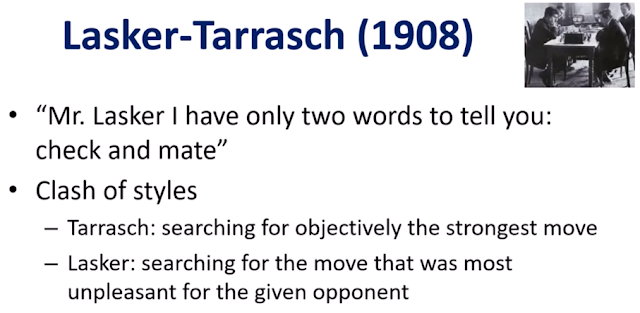





















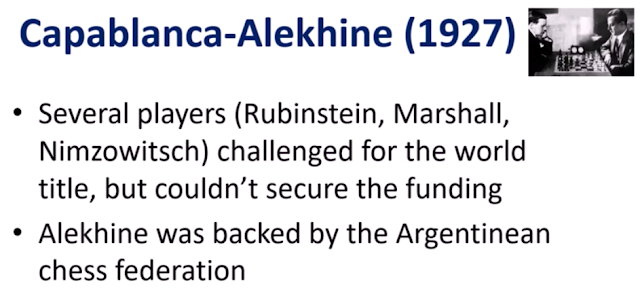






























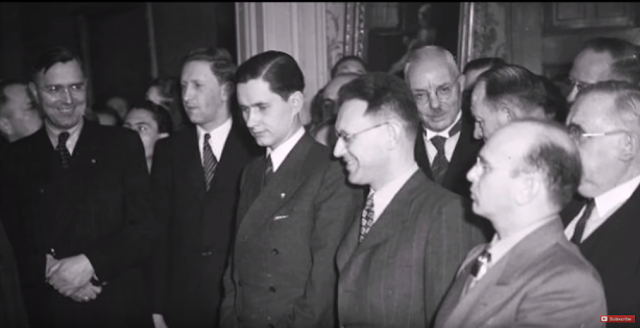
















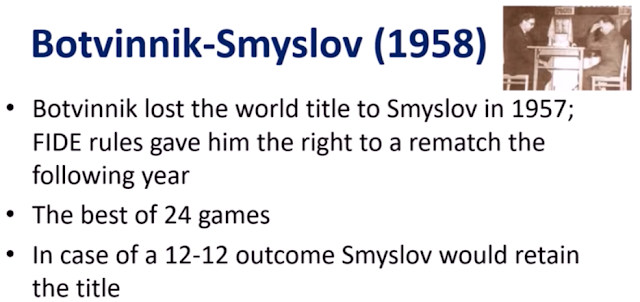
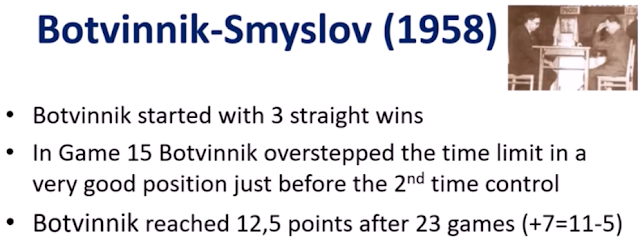
























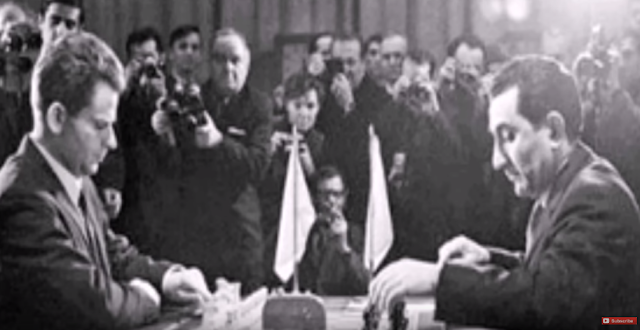




































































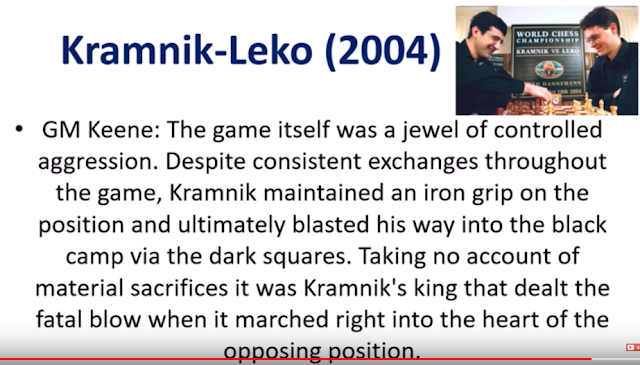




















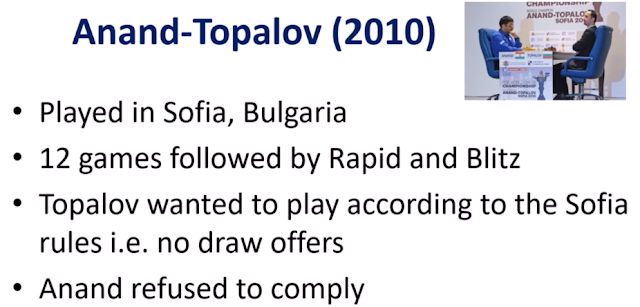







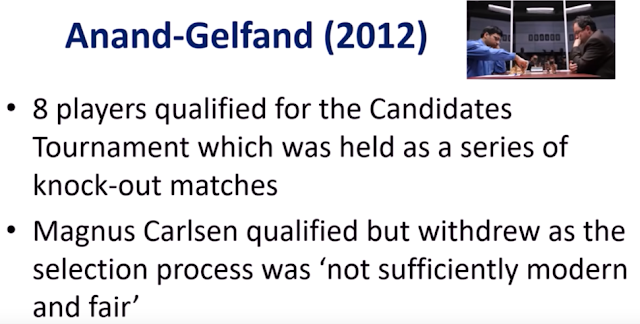
















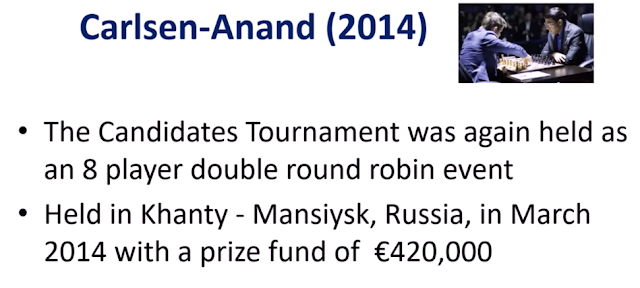











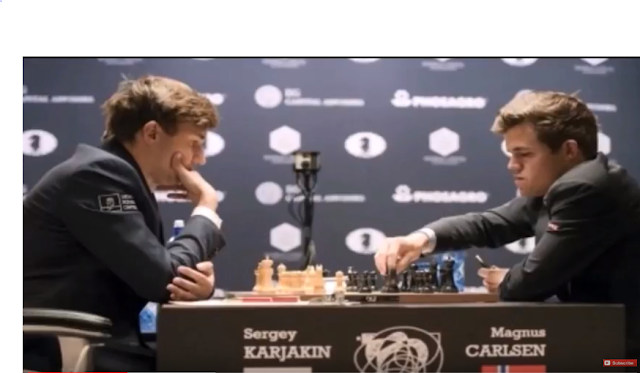

















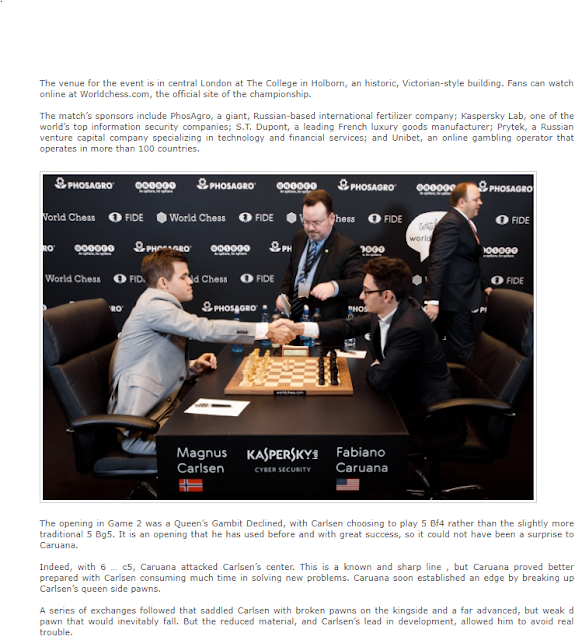




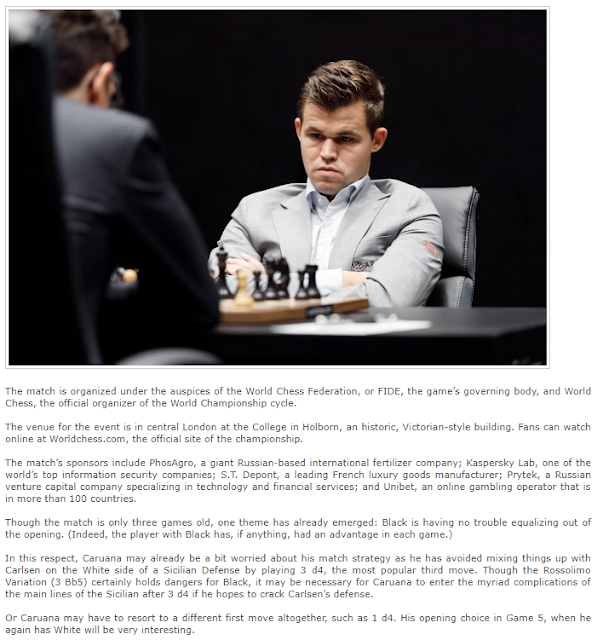










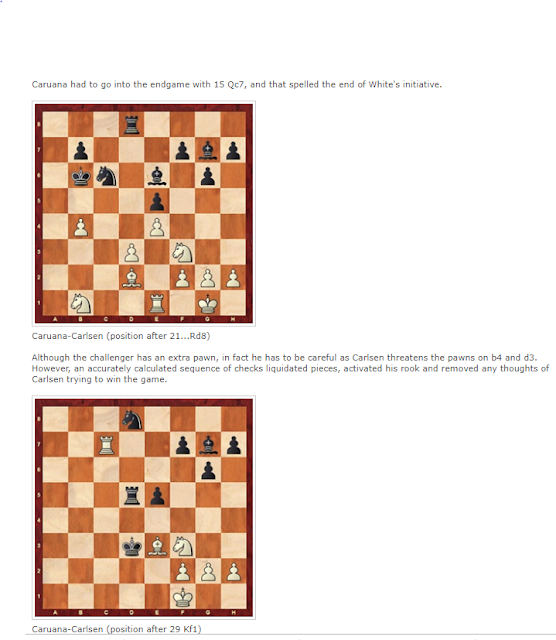

























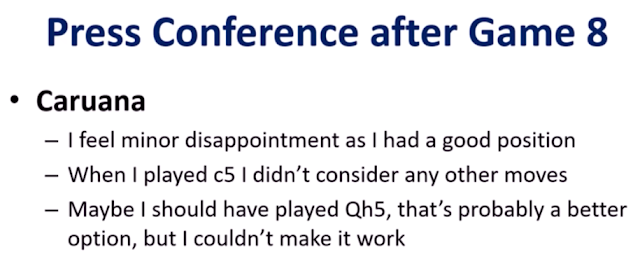









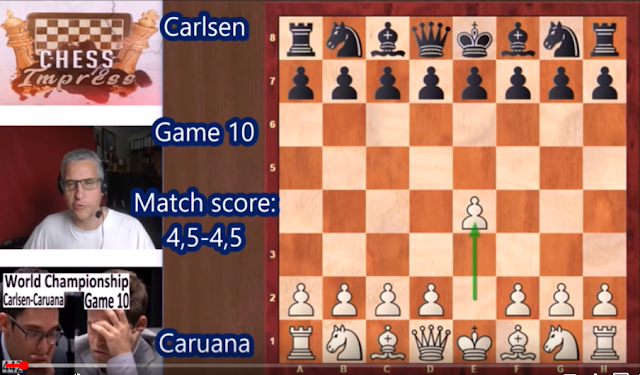































No comments:
Post a Comment